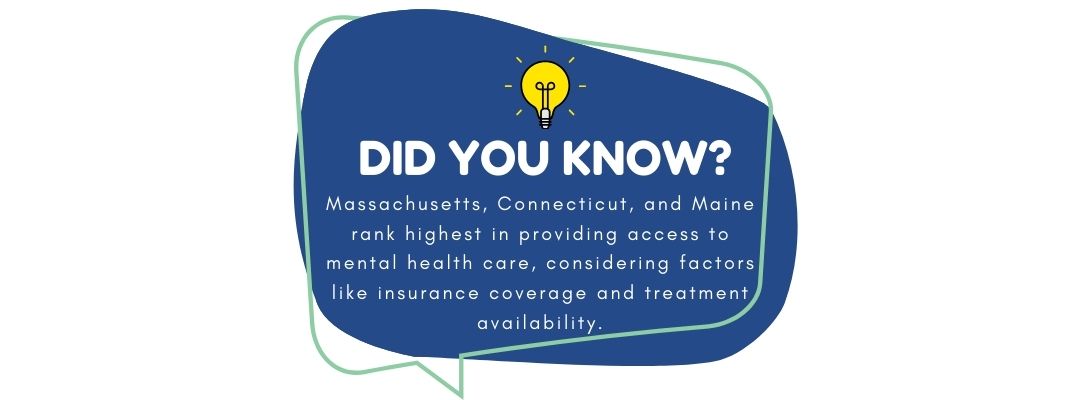Where to Live If You Have Mental Health Issues: Finding the Right Environment for Well-Being
Where to live if you have mental health issues? Finding the right place to live can greatly impact mental health. People with mental health issues often benefit from environments that offer support, resources, and opportunities for independence. Whether it’s urban living with access to healthcare or a quieter rural setting, choices must align with personal needs and preferences.
It’s essential to evaluate housing options thoughtfully. Communities with strong mental health services, reliable transportation, and social support networks can contribute to a better quality of life. Understanding the strengths and challenges of different living environments will help individuals make informed decisions about where to call home.
Key Takeaways
- Living in supportive communities enhances mental well-being.
- Access to healthcare and local resources is vital for stability.
- Evaluating personal needs will help in choosing the right living situation.
Understanding Mental Health Issues
Mental health issues can affect anyone, regardless of age or background. They encompass a range of conditions that impact emotional, psychological, and social well-being. Recognizing these issues is crucial in finding appropriate support.
Common mental health disorders include:
- Depression: Affects mood and energy levels.
- Anxiety Disorders: Causes excessive worry or fear.
- Bipolar Disorder: Involves extreme mood swings.
- Schizophrenia: Affects reality perception and thinking.
Symptoms of mental health issues may include:
- Changes in mood: Feeling sad, anxious, or irritable.
- Withdrawal: Avoiding social interactions.
- Changes in sleep: Insomnia or excessive sleeping.
- Difficulty concentrating: Struggling to focus on tasks.
Understanding mental health helps in recognizing when to seek help. Many people are unaware that what they experience is a mental health issue. They might view their symptoms as a normal part of life. This leads to missed opportunities for support and treatment.
Seeking help is essential for managing these conditions. Consulting a mental health professional can provide guidance and coping strategies. Areas like community support, therapy options, and medication can be explored for effective management.
Communities can play a vital role in supporting those with mental health issues. Creating safe and understanding environments can help individuals feel less isolated. Awareness of mental health continues to grow, highlighting its importance in everyday life.

Evaluating Your Living Needs: Where to Live If You Have Mental Health Issues
Finding the right living situation is crucial for anyone dealing with mental health issues. Assessing individual needs and the accessibility of support resources are vital in making informed decisions.
Assessing Personal Mental Health Needs
Understanding personal mental health needs is the first step in evaluating living situations. Individuals should consider how their mental health condition affects daily life. For example, those with anxiety might benefit from a calm, quiet environment.
Taking note of specific requirements is essential. This could include:
- Accessibility features: Ramps, grab bars, or other modifications might be necessary for those with physical limitations.
- Safety concerns: A secure neighborhood can reduce anxiety.
- Space: A larger living area can provide a sense of freedom and comfort.
Living alone may work for some, while others may thrive in a shared environment where they receive support and companionship.
Considering Professional Support Accessibility
Proximity to mental health services can significantly impact well-being. Access to therapists, support groups, or hospitals should be a priority.
Individuals should evaluate local resources, such as:
- Therapists: How far must one travel to see a mental health professional?
- Support groups: Check if local organizations (like NAMI) offer regular meetings nearby.
- Public transportation: Availability of transportation options is crucial for those who do not drive.
Being close to these resources can provide easy access to help when needed and support recovery journeys.
City Living vs. Rural Retreat
Choosing between city living and rural retreats can deeply affect mental health. Each environment offers unique benefits and challenges that can influence daily life and well-being.
Benefits of Urban Environments
Urban areas provide access to various mental health resources. They often have numerous therapists, support groups, and wellness programs. This availability can make it easier for individuals to seek help when needed.
City living also promotes social interaction. With a variety of events, restaurants, and community activities, residents can connect with others. This social engagement is vital for mental well-being.
Moreover, urban environments offer stimulation. The diversity of experiences and cultures can inspire creativity and motivation. For some, this vibrant setting can help alleviate feelings of isolation and depression.
Advantages of Rural Areas
Rural areas present a quieter lifestyle, often linked to lower stress levels. The peaceful environment can reduce anxiety and promote a sense of calm. Natural surroundings can also contribute positively to mental health.
Access to nature is a significant benefit. Green spaces encourage outdoor activities, which are beneficial for mood and emotional health. Studies suggest that spending time in nature can decrease symptoms of anxiety and depression.
Rural communities often have close-knit relationships. This can lead to strong support systems, fostering a sense of belonging. Such connections are important for individuals dealing with mental health issues.
Choosing the Right Housing
Selecting appropriate housing is crucial for individuals with mental health issues. The right type of accommodation can provide stability and a sense of community. There are various housing options, important factors to consider, and needs for safety and support. Accommodations will vary on location depending on what you decide on where to live if you have mental health issues.
Types of Housing Accommodations
There are several types of housing accommodations suitable for individuals with mental health issues. Options may include:
- Independent Living: This allows individuals to manage their own households with support available as needed.
- Supported Housing: Here, tenants receive assistance from social workers or case managers who help them manage daily tasks.
- Group Homes: These houses offer a community setting, providing support from staff and interactions with peers.
- Transitional Housing: This temporary housing helps individuals move towards independent living while receiving necessary support.
Each type varies in the level of independence and support, allowing individuals to choose what best fits their needs.
Factors Influencing Housing Decisions
Several factors influence the choice of housing for those with mental health issues. Key considerations include:
- Financial Resources: Many individuals may require financial assistance, such as government-funded rental assistance or subsidies.
- Level of Independence: The desire to live independently varies. Some may prefer full independence, while others may need more support.
- Community Support: Availability of local mental health services and support networks will help determine the best housing option.
- Location: Proximity to essential services like healthcare, grocery stores, and public transportation is vital for overall well-being.
These factors play a significant role in the decision-making process.
Safe and Supportive Housing Environments
A safe and supportive housing environment is essential for individuals with mental health challenges. Key elements include:
- Stability: Consistent and stable housing promotes mental well-being. Frequent moves can disrupt support systems and worsen mental health.
- Safety: The housing should be in a safe neighborhood, reducing stress from safety concerns.
- Support Services: Access to mental health services and community resources fosters a supportive environment.
- Shared Experiences: Living with others who face similar challenges can create a sense of belonging and provide emotional support.
These aspects contribute to building a healthy living situation that supports recovery and stability.
Community and Social Support
A strong community and social connections are crucial for individuals facing mental health challenges. Support systems can help enhance emotional well-being and provide essential resources. Understanding how to connect with others and find support can make a significant difference in daily life.
Importance of Community Connections
Community connections play a vital role in mental health. Being part of a community can foster a sense of belonging and reduce feelings of isolation. Regular social interactions can uplift mood and provide emotional support.
Communities can vary in size and type, from small groups of friends to larger organizations. Each connection offers unique benefits, such as shared experiences or access to resources. For those with mental health issues, engaging in community activities can lead to increased happiness and a feeling of stability.
Creating relationships with neighbors, coworkers, or local groups enriches life. Engaging in activities like volunteering or attending local events can open doors to new friendships. This positive social network can lead to improved mental health outcomes.
Finding Peer Support Groups
Peer support groups are excellent resources for individuals dealing with mental health conditions. These groups provide a safe space for sharing experiences and coping strategies. Participants often find comfort in knowing they are not alone in their struggles.
To find a suitable group, individuals can start by researching local mental health organizations. Many communities offer groups specific to different conditions, such as anxiety or depression. Online platforms also host virtual support groups that can be more accessible.
Many peer support initiatives are led by trained facilitators. They ensure a supportive environment that promotes sharing and understanding. Joining these groups can lead to lasting friendships and a network of understanding peers who can offer help during tough times.
Healthcare Infrastructure
Access to mental health services and the quality of local healthcare facilities are critical factors for those living with mental health issues. Understanding these elements can help individuals make informed decisions about where to live. The available resources is among the top things to consider when deciding where to live if you have mental health issues.
Mental Health Services Availability
The availability of mental health services varies significantly across different regions. Many areas face a shortage of providers, leaving gaps in care. For example, approximately 570 counties in the U.S. lack mental health professionals, making access to treatment challenging for residents.
Furthermore, states with high rates of uninsured individuals struggle more with mental health support. This can lead to many people avoiding necessary care. Effective services include therapy, medication management, and crisis intervention.
Communities with strong programs often provide resources for support groups and preventative care. Availability of these services plays a key role in maintaining mental wellness for residents.
Quality of Local Healthcare Facilities
Quality of healthcare facilities can greatly influence mental health care outcomes. Facilities that are well-staffed and equipped tend to offer better care options. Those with specialized mental health units often provide better treatment practices.
Research shows that about 20% of children with mental health disorders receive care from specialized providers. Quality indicators include staff training, treatment approaches, and facility conditions.
Moreover, hospitals that integrate behavioral health into their overall services can enhance patient outcomes. Access to timely and effective care is crucial for recovery.
Individuals should consider these factors when evaluating potential living locations.
Employment Opportunities
Employment is a key factor in supporting mental health. Finding the right workplace can provide stability and purpose. Understanding workplace policies and the benefits of meaningful work is essential.
Workplace Mental Health Policies
Many companies are recognizing the importance of mental health in the workplace. They are implementing policies that promote a supportive environment. This includes training for managers to understand mental health issues and create an open dialogue.
Key Policies to Look For:
- Flexible Work Hours: Allows employees to manage their schedules based on their mental health needs.
- Employee Assistance Programs (EAPs): Offer counseling services and mental health resources.
- Health Benefits: Should include mental health coverage to seek therapy or medication if needed.
These policies can help employees feel understood and supported. A positive work environment can significantly enhance overall well-being.
Finding Purpose Through Employment
For many, having a job means more than just earning an income. It can offer a sense of purpose and accomplishment. Employment opportunities that align with personal interests can boost self-esteem and motivation.
Consider these factors when exploring jobs:
- Job Matching: Look for jobs that suit one’s skills and interests.
- Supportive Work Culture: Choose companies that prioritize mental health and inclusivity.
- Remote Work Options: These can provide flexibility and reduce stress from daily commutes.
Engaging in fulfilling work can have a profound positive impact. It can lead to personal growth and improved mental health outcomes.
Education and Training Resources
Access to education and training resources is vital for those dealing with mental health issues. Understanding mental health conditions can empower individuals and their families.
NAMI Family & Friends Seminar:
This is a four-hour seminar that supports those who have loved ones with mental health conditions. Participants learn about diagnoses, treatment, and communication strategies. More information can be found at NAMI Family & Friends.
American Mental Wellness Programs:
Various programs help individuals recognize signs of mental health problems. These courses come from reliable sources like SAMHSA’s National Registry. Details can be accessed at Education & Training Programs.
Peer-Led Programs by NAMI:
Many NAMI affiliates provide free educational programs. These are led by individuals with lived experience, offering valuable insights. Explore the options at Support & Education – NAMI.
Mental Health Treatment Options:
Treatment may include therapy, medication, or both. Understanding available options is essential. The National Institute of Mental Health offers a guide to finding health providers at Help for Mental Illnesses.
These resources provide essential knowledge for those navigating mental health challenges.
Transportation and Mobility
Transportation access is vital for individuals with mental health issues. Reliable mobility can help them reach essential services, including therapy and support groups.
Challenges with Transportation:
- Lack of reliable transport can lead to missed appointments.
- Isolation may increase without easy access to mobility.
- Transportation barriers can worsen mental health conditions.
Benefits of Good Transportation:
- Access to public transport can reduce feelings of isolation.
- Reliable transport increases the likelihood of attending therapy.
- Community transportation services can offer support for those in need.
Many mental health organizations are aware of these challenges. Agencies often collaborate with transportation services to improve access. Programs that provide rides can be crucial.
Key Options for Transportation:
- Public transit systems: Buses and trains often offer affordable rides.
- Ride-sharing services: Apps like Uber and Lyft can provide on-demand transport.
- Specialized transport: Some communities have services for individuals with disabilities.
Better transportation leads to improved mental health outcomes. Ensuring easy access to these services can help individuals maintain their treatment and social connections.
Safety and Crime Rates
Where to live when you have mental health issues should be decided with consideration of all factors. When considering where to live with a mental health issue, safety is a crucial factor. High crime rates can negatively affect well-being and increase stress.
Living in neighborhoods with low crime rates tends to provide a sense of security. This can help residents feel safer and more at ease in their environment. For example, areas with lower violence and theft rates often promote peace of mind.
Factors to Consider:
- Crime Statistics: Look for communities that report low crime rates. Websites and local resources often provide detailed statistics.
- Community Programs: Neighborhoods with strong community programs may foster safety. Programs that engage residents can create supportive environments.
- Perceptions of Safety: Feeling safe is as important as actual crime rates. Areas with active neighborhood watch programs can enhance residents’ feelings of protection.
Studies show that high crime rates lead to higher levels of anxiety and depression in residents. Safe neighborhoods are linked to better mental health outcomes.
For individuals focused on mental wellness, moving to a community with a good safety record can be beneficial. An area with a supportive culture and low crime helps individuals feel secure. This supportive environment can play a significant role in their overall mental health journey.
Leisure and Recreation Activities
Engaging in leisure and recreation activities can greatly benefit individuals with mental health issues. These activities provide a chance to relax, socialize, and improve overall well-being.
Types of Leisure Activities:
- Active Leisure: Includes sports, hiking, and dancing. These activities promote physical health and can uplift mood.
- Passive Leisure: Activities like reading, watching movies, and listening to music offer relaxation and a way to escape daily stress.
Benefits of Recreation Activities:
- Stress Relief: Recreation can significantly reduce stress levels.
- Social Interaction: Many activities encourage socializing, which helps combat feelings of isolation.
- Enhanced Mood: Fun activities can improve overall mood and feelings of happiness.
- Improved Self-esteem: Successfully engaging in hobbies can boost confidence.
Considerations When Choosing Activities:
- Personal Interests: It’s important to choose activities that align with personal likes and dislikes.
- Accessibility: Look for local options that are easy to access and participate in.
- Support Systems: Group activities can be beneficial, as they provide social support.
Incorporating leisure and recreation into daily life can be an important step toward improving mental health.
Long-Term Considerations
When choosing a place to live with a mental health issue, several long-term factors are important. Safe and stable housing can significantly impact recovery. Many people rely on Supplemental Security Income (SSI) for support, which may limit housing options.
Accessibility is key. Look for:
- Transportation: Access to public transport can help with getting to appointments.
- Local services: Proximity to mental health services, such as therapy and support groups, is crucial.
Community support plays a vital role. Living in areas with mental health organizations, such as the Depression and Bipolar Support Alliance, can provide ongoing help. These resources can guide individuals to helpful programs and services.
Affordability cannot be overlooked. Finding a suitable place that fits a limited budget is essential. A lack of affordable housing can lead to stress and instability in an individual’s life.
Choosing the right living situation involves balancing independence with necessary support. While wanting to live independently is common, the challenges of severe mental illness can affect this. It’s important to evaluate personal needs with available resources. Making informed choices can foster stability and long-term recovery.
Frequently Asked Questions
Finding suitable housing is crucial for individuals with mental health issues. This section addresses common questions about housing programs, supportive environments, and resources tailored to their needs that someone asking where to live if you have mental health issues may also ask.
What types of housing programs are available for individuals with mental illness?
There are various housing programs specifically designed for individuals experiencing mental health issues. These include supportive housing, transitional housing, and assisted living facilities. Each program offers different levels of support and resources to help residents manage their mental health effectively.
How can someone with a mental health issue find free or subsidized housing?
Individuals can locate free or subsidized housing through local mental health organizations, government agencies, and non-profit groups. They may also access resources online or by contacting social services in their area. Being proactive and reaching out to available services can lead to suitable housing options.
What are the characteristics of a supportive living environment for adults with mental health needs?
A supportive living environment typically features safety, stability, and access to mental health services. It should promote social connections and provide opportunities for recovery and independence. Additionally, a positive atmosphere encourages a sense of belonging and community among residents.
How do group homes support adults with mental health issues?
Group homes provide a structured setting for adults with mental health challenges. They offer on-site support from trained staff, which helps residents manage daily activities and therapeutic needs. Living in a group home can also foster social interactions, reducing feelings of isolation.
What should be considered when looking for the best place to live for access to mental health services?
When searching for housing, individuals should consider proximity to mental health services, availability of public transportation, and community support. It’s important to evaluate the local resources, including clinics, therapists, and crisis services. Each factor contributes to the quality of care and support available.
How does one apply for a mental health housing voucher or assistance program?
To apply for a mental health housing voucher or assistance, individuals typically need to contact local housing authorities or mental health service providers. They should prepare necessary documentation, which may include income verification and records of mental health diagnoses. Completing the application process can provide access to essential housing support.
Conclusion: Where to Live if you Have Mental Health Issues?
Where to live if you have mental health issues? Choosing where to live is a significant decision for individuals managing mental health issues. The right environment can provide stability, access to resources, and a sense of community that fosters recovery and well-being. Factors like proximity to mental health services, supportive housing options, and community connections play a critical role in enhancing quality of life.
Urban settings offer accessibility to healthcare and social opportunities, while rural retreats provide peace and a closer connection to nature. Balancing personal needs, safety, and financial resources is essential in making an informed choice.
Ultimately, a supportive living environment empowers individuals to thrive and manage their mental health more effectively. By carefully evaluating options and seeking guidance from healthcare professionals or community organizations, individuals can create a foundation for long-term well-being and success.
You’re not alone, and help is always within reach. Contact us today at (774) 619-7750 and take control over your mental health.




